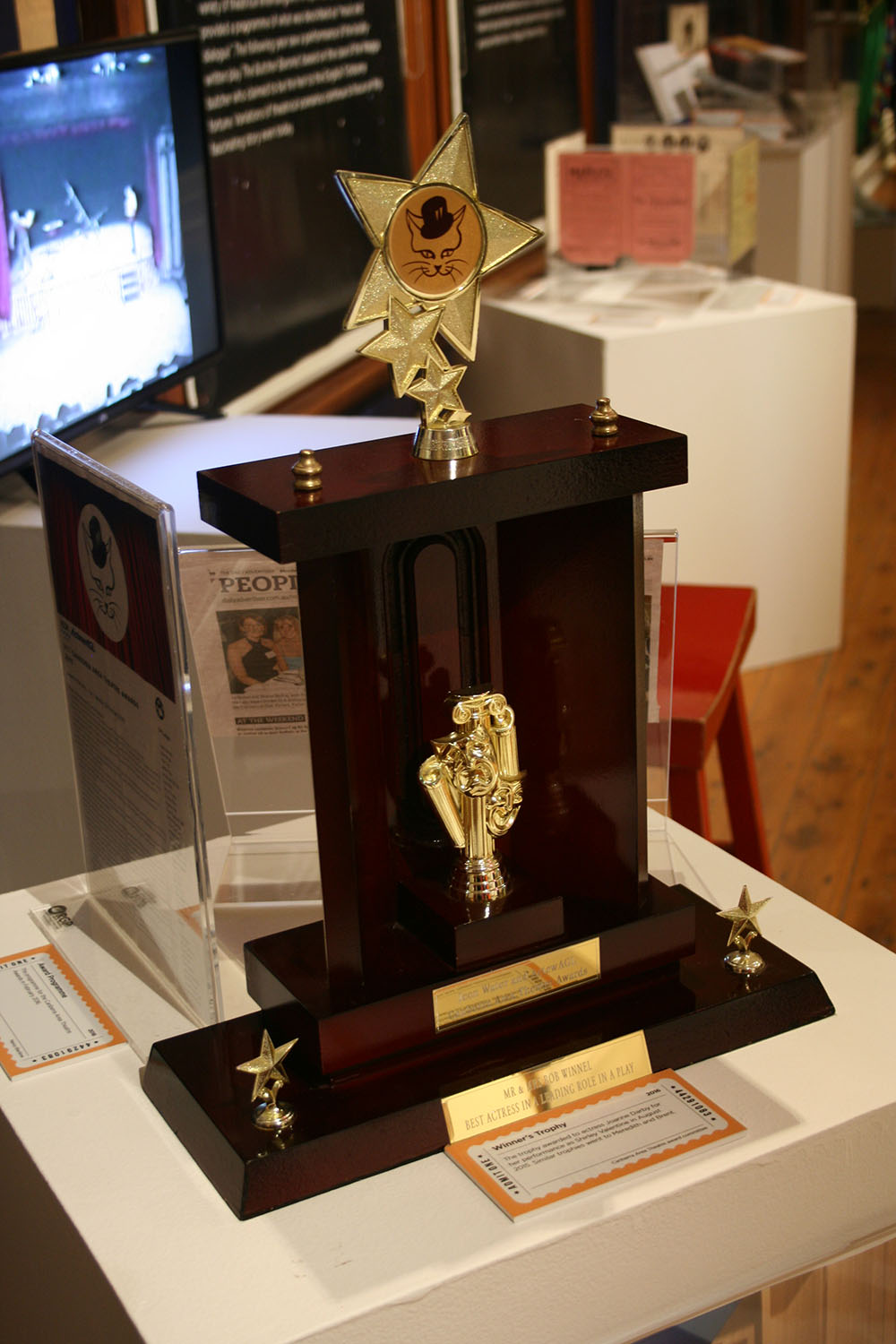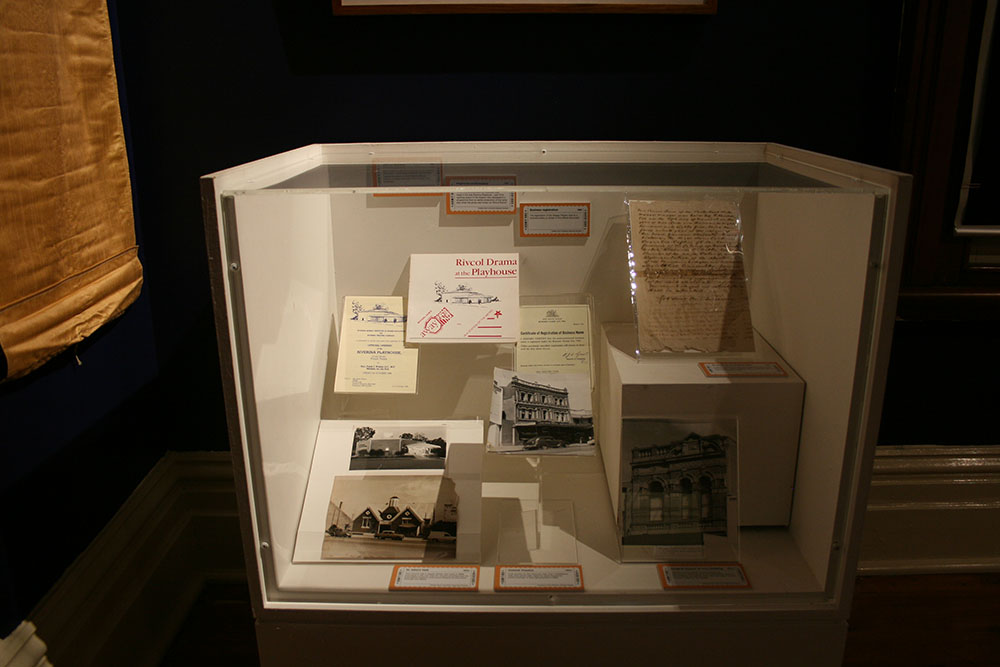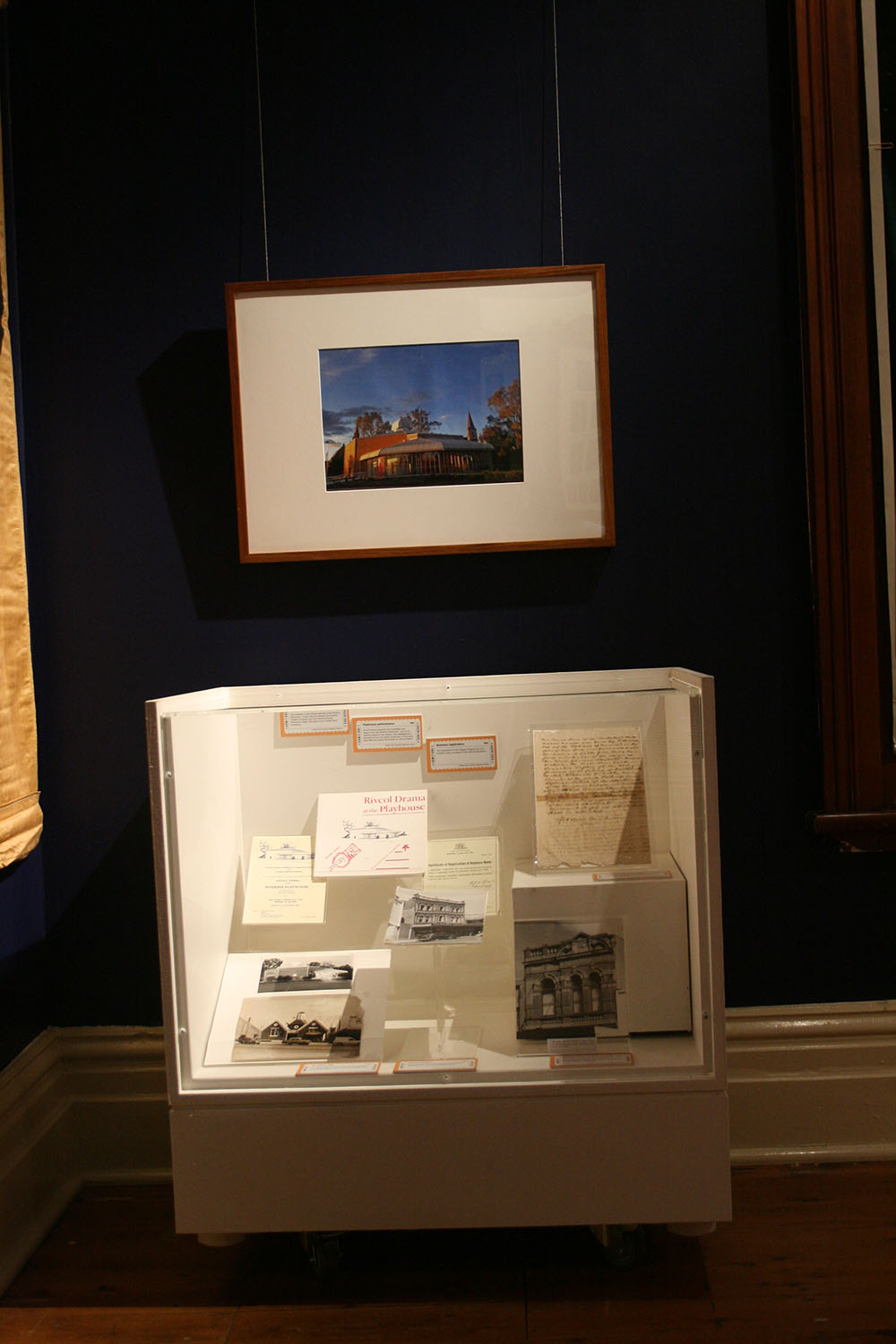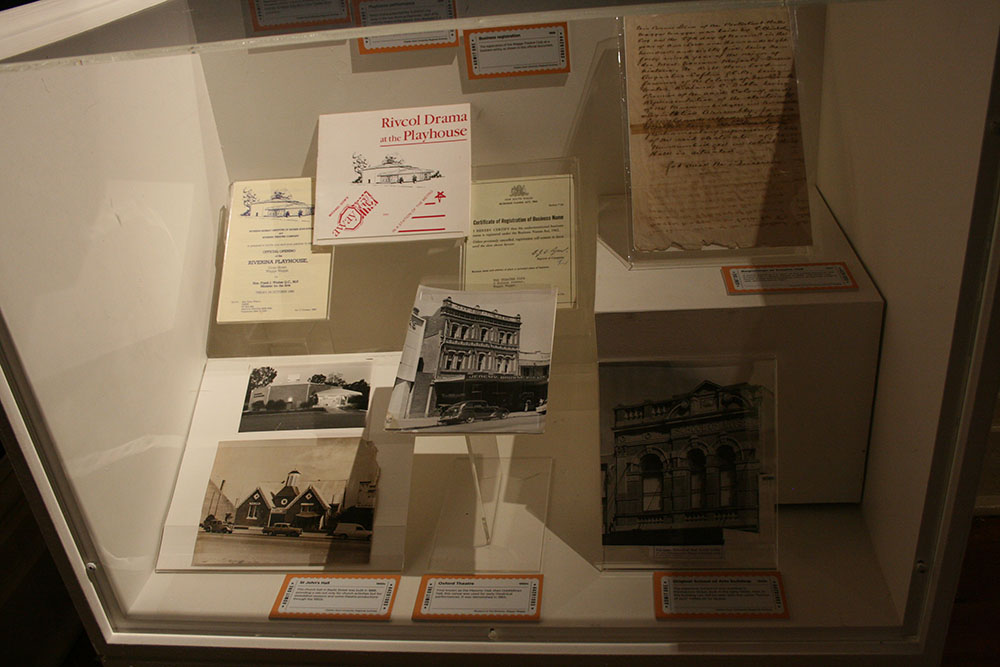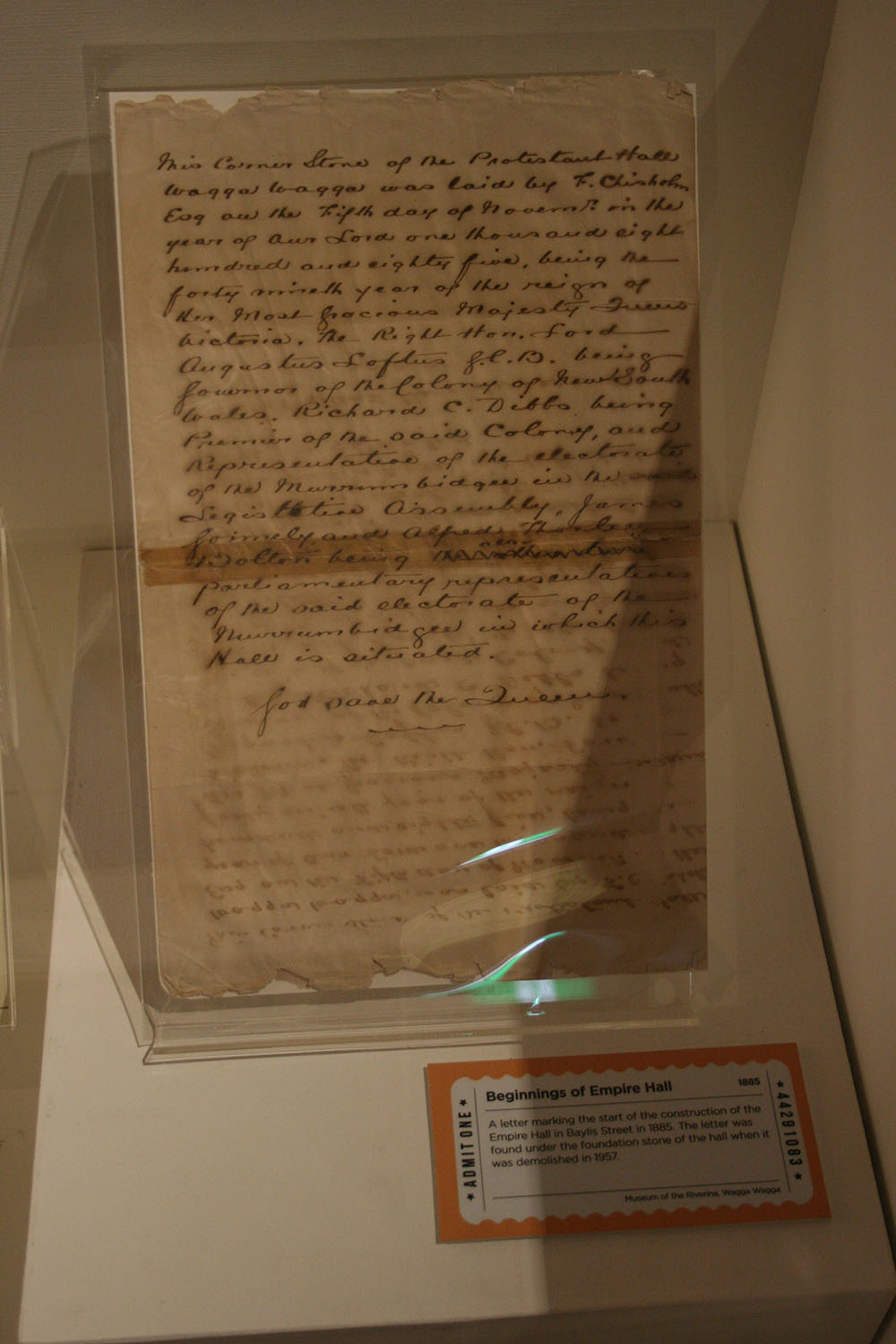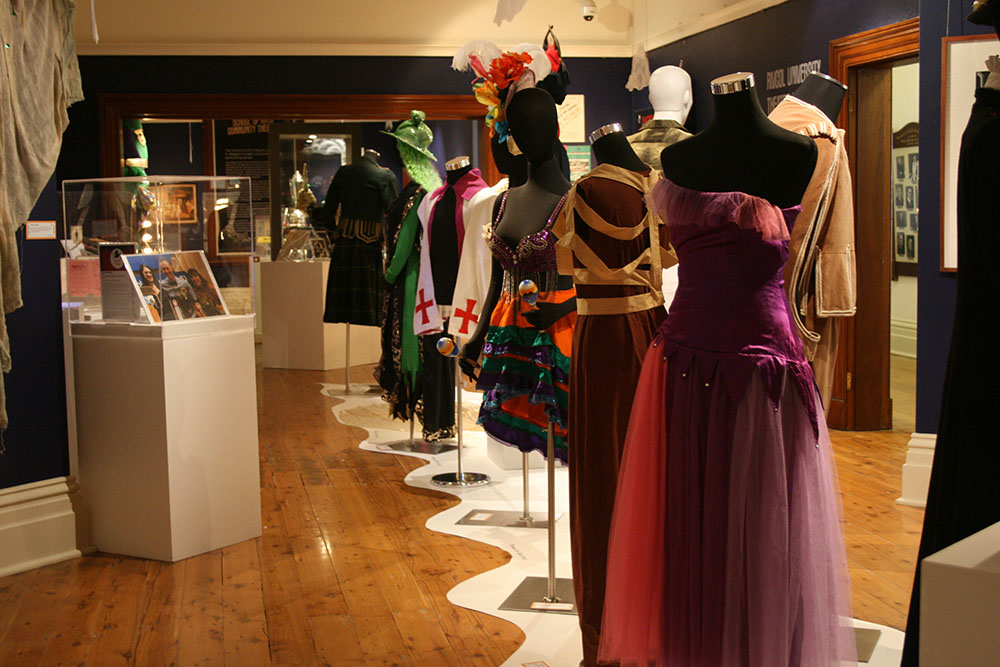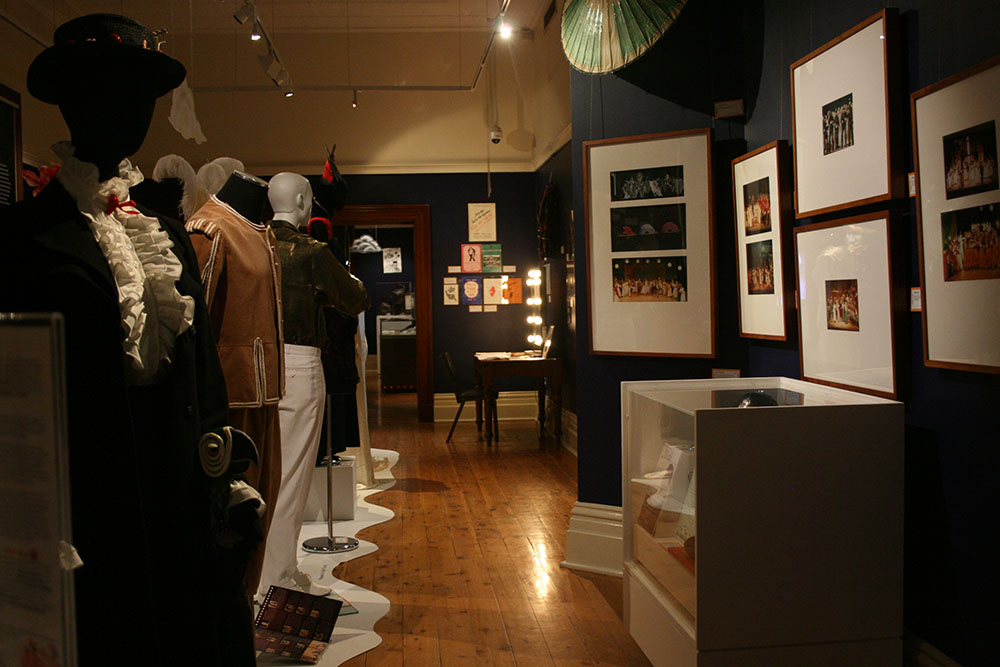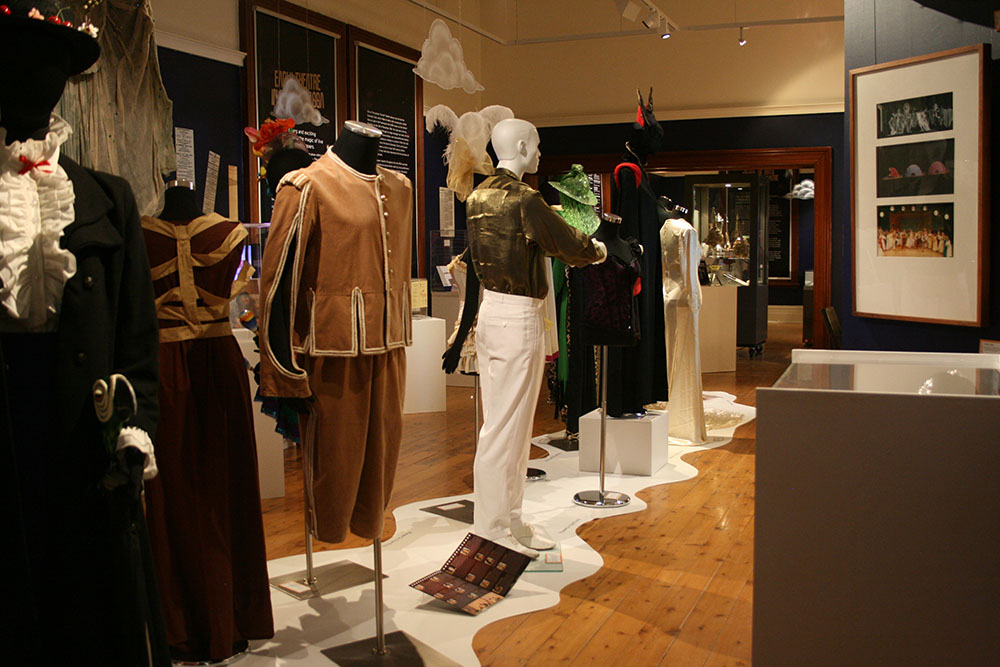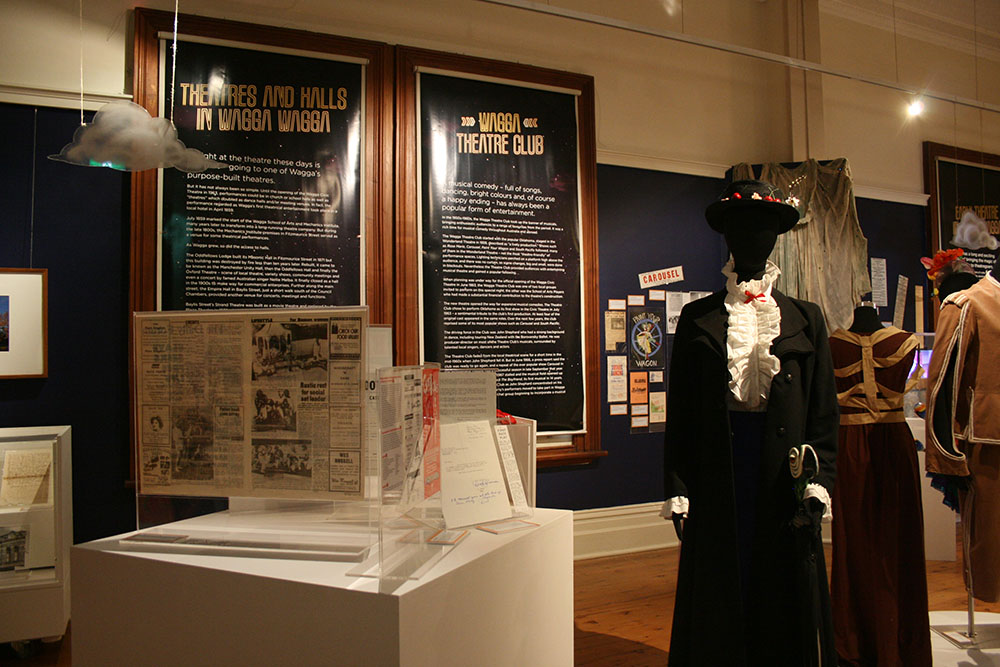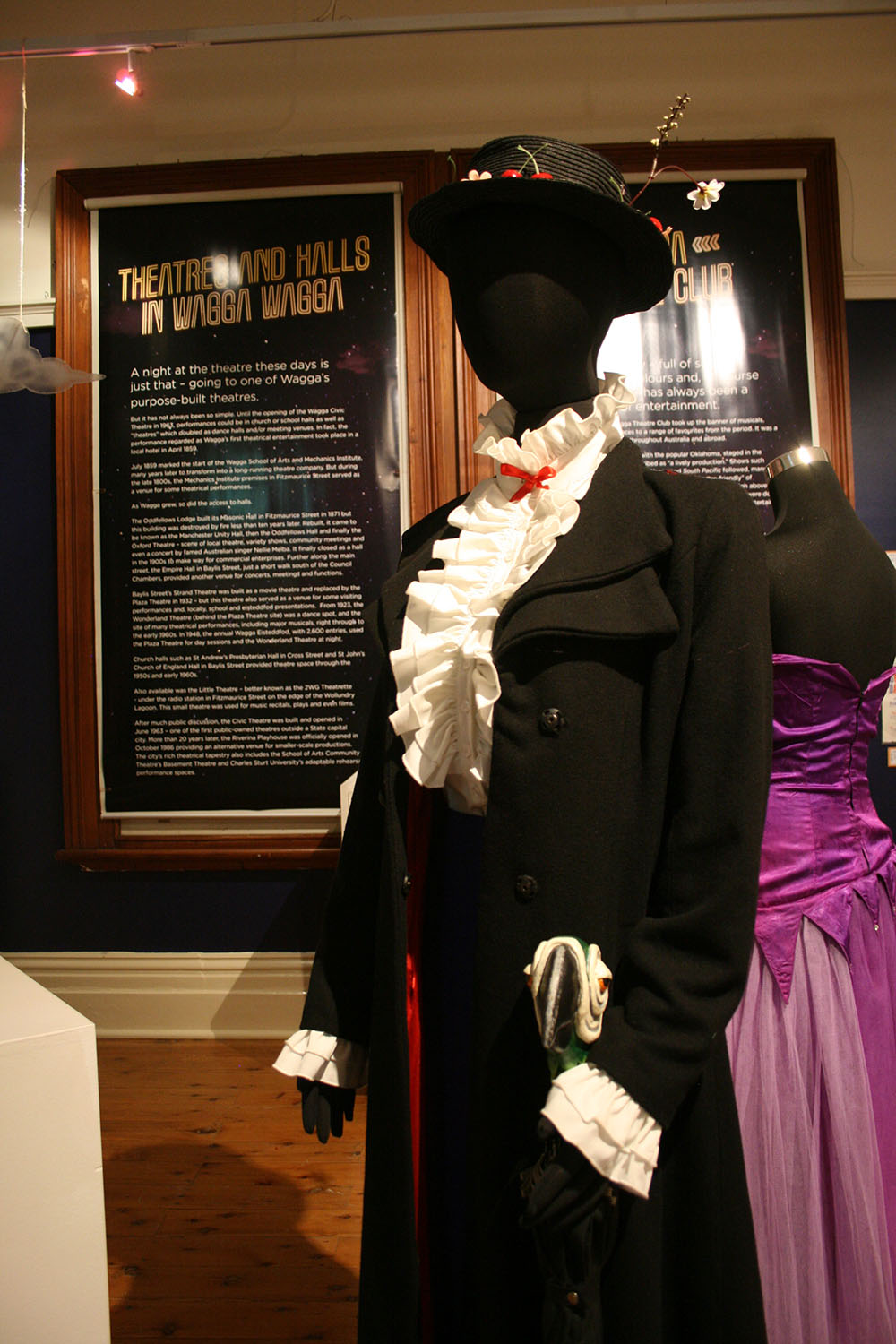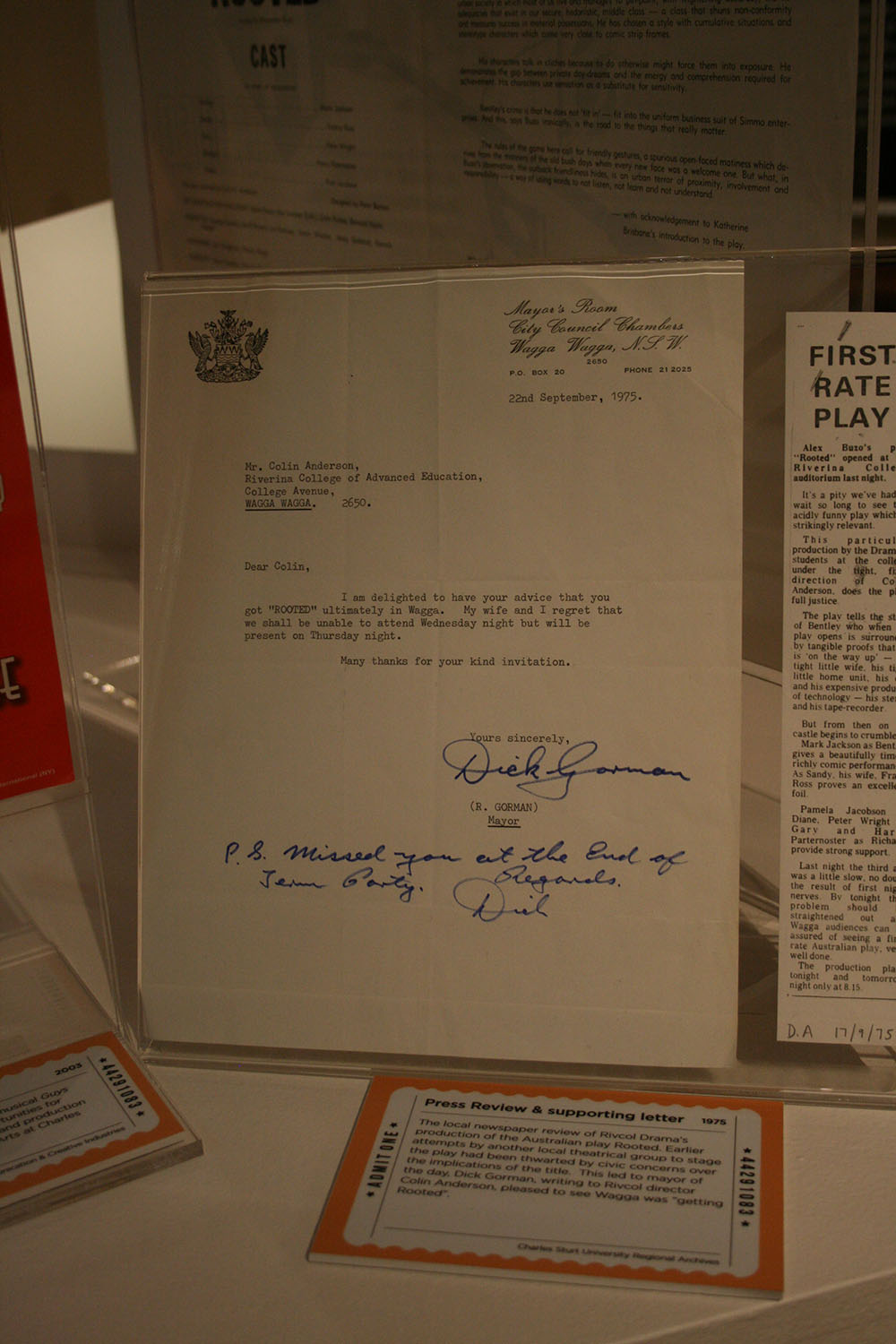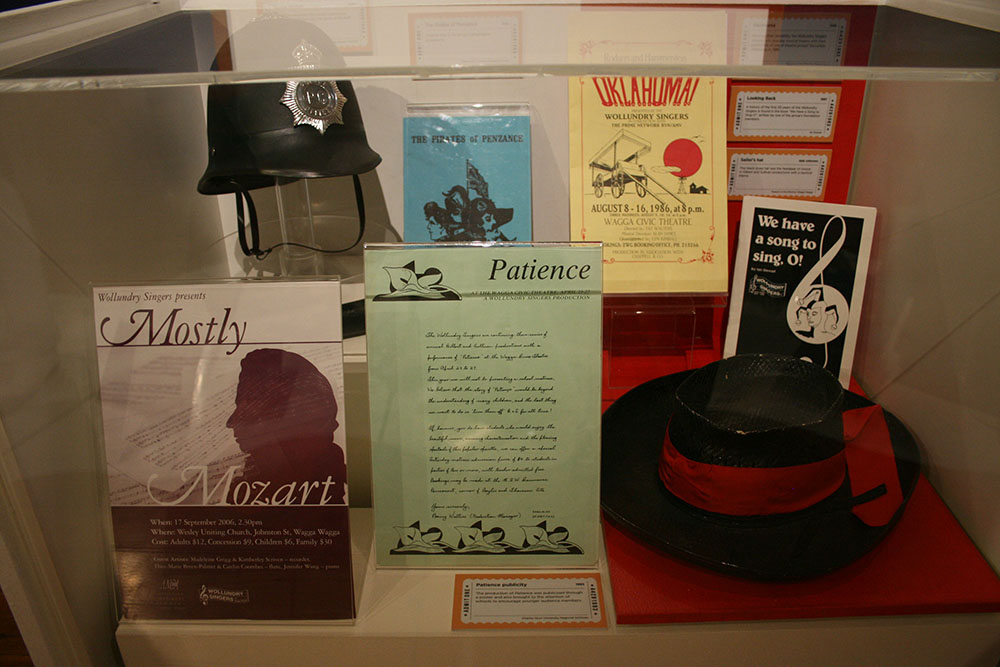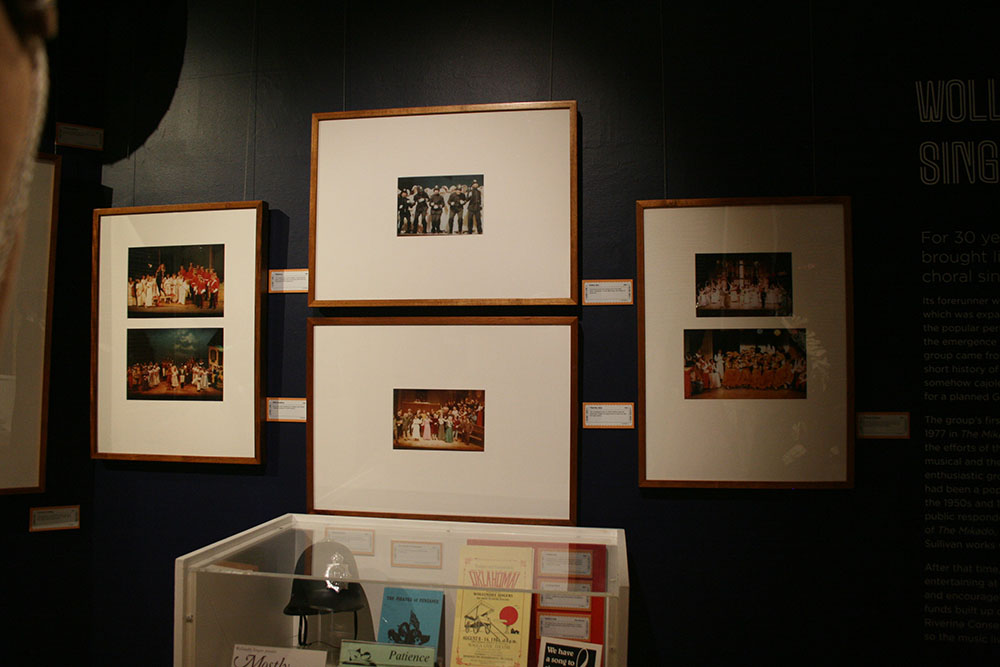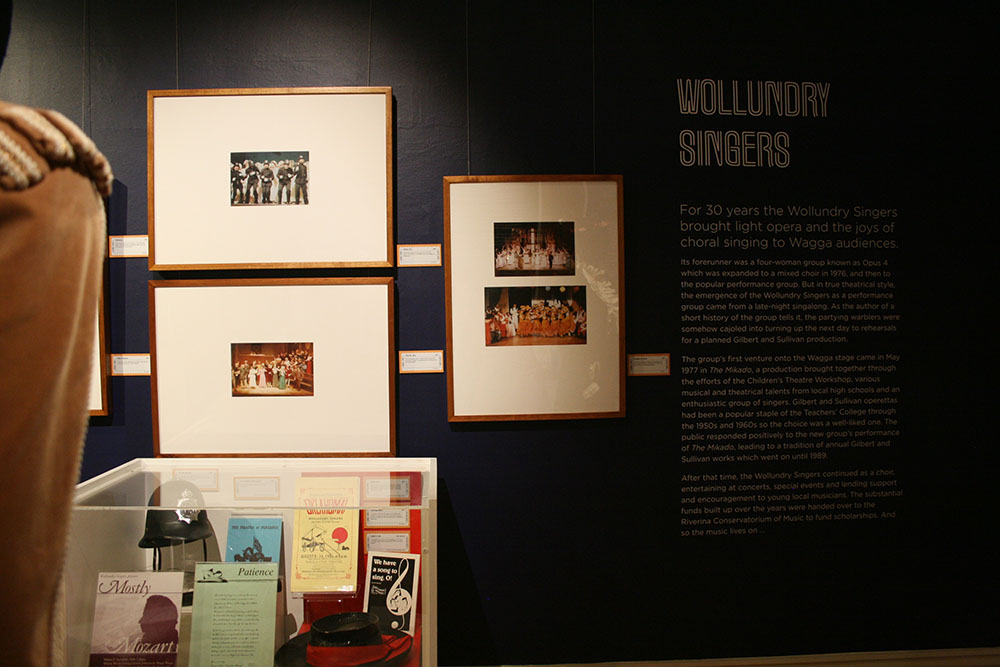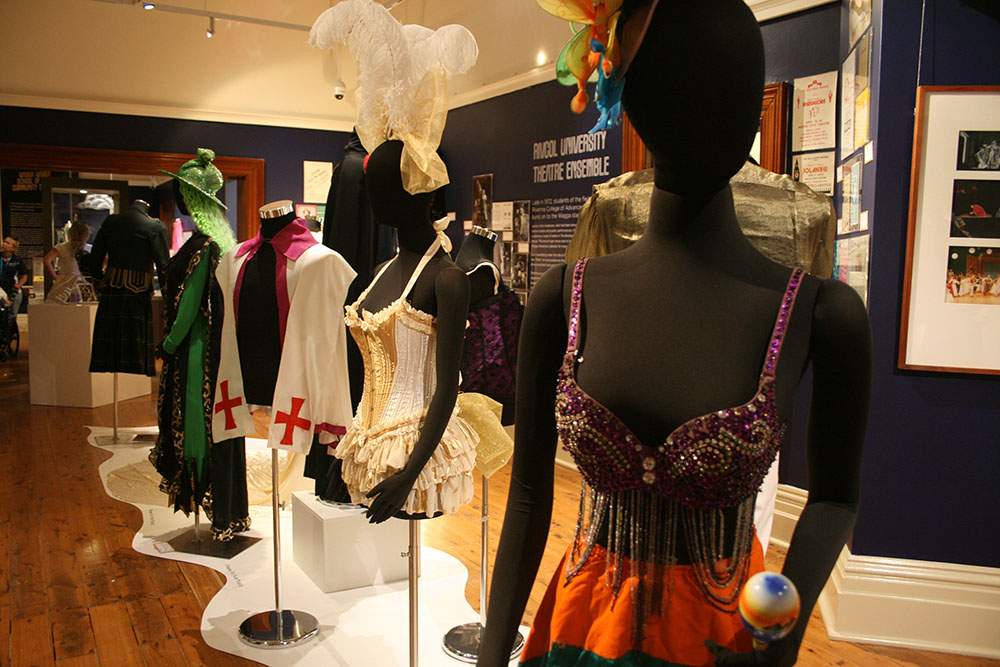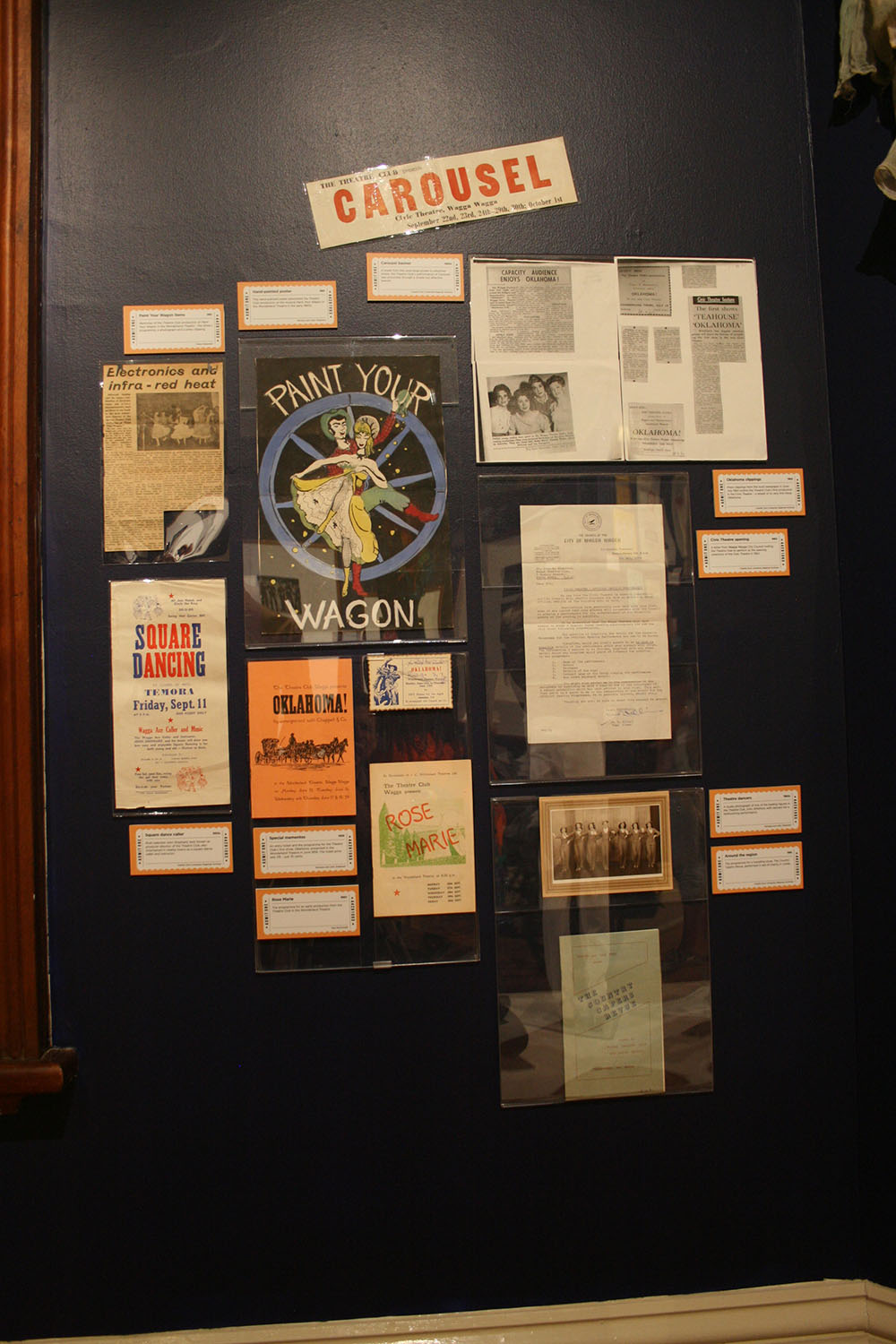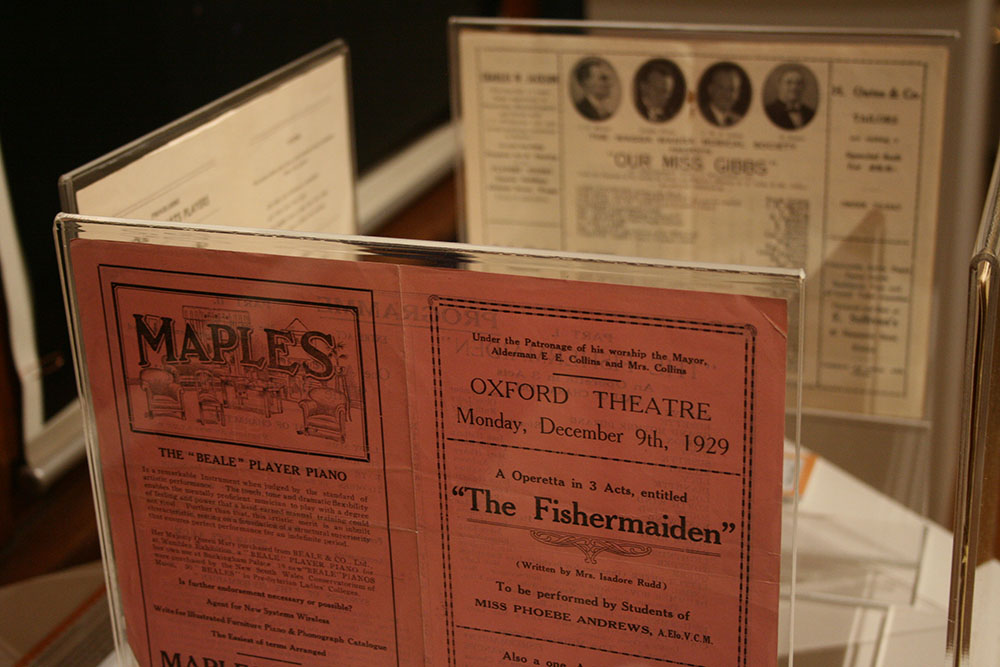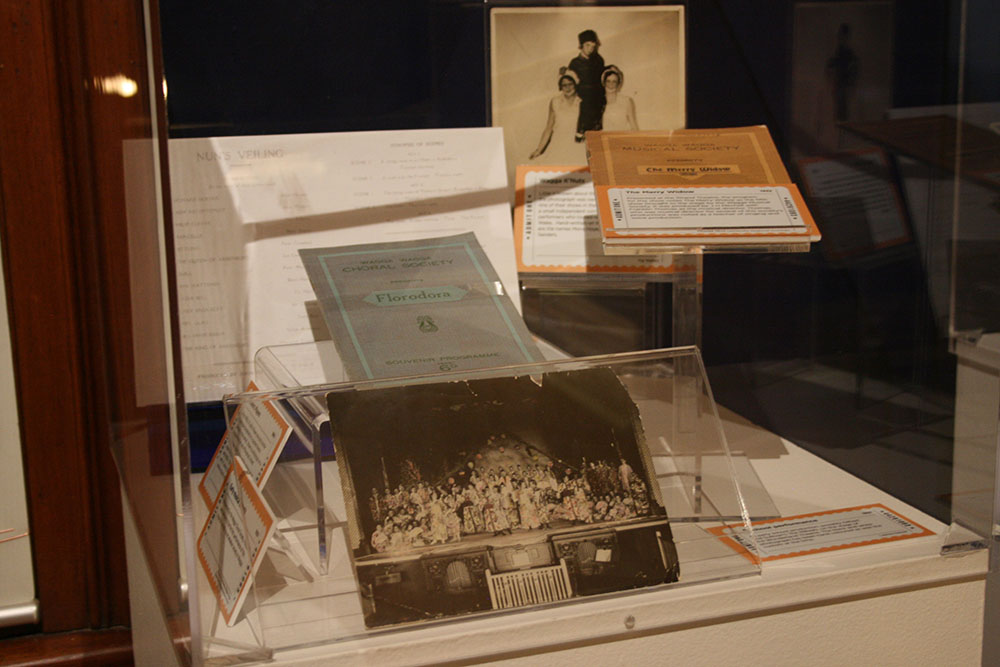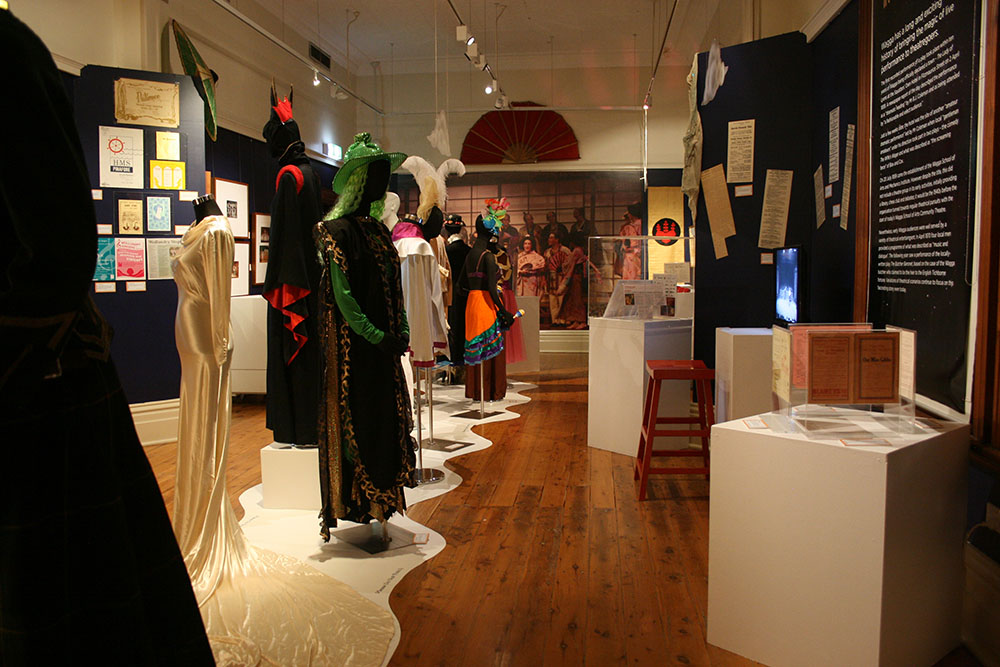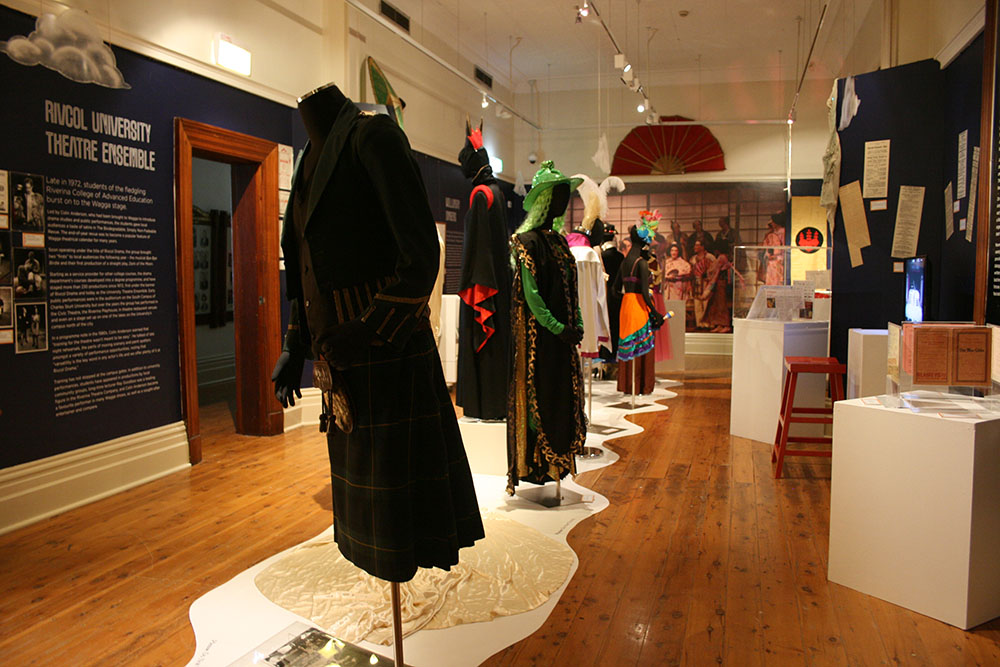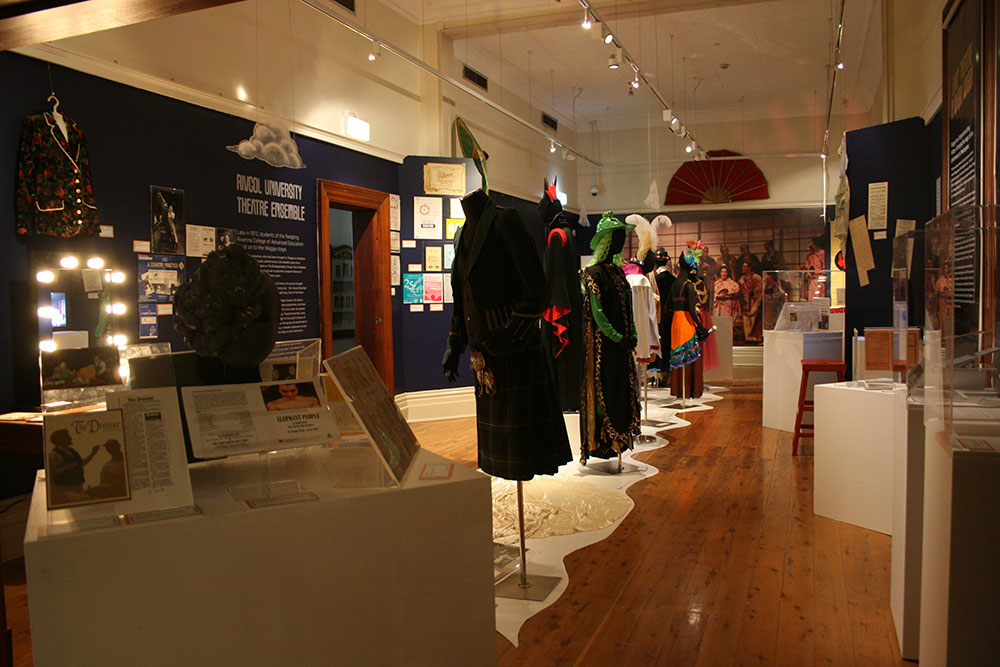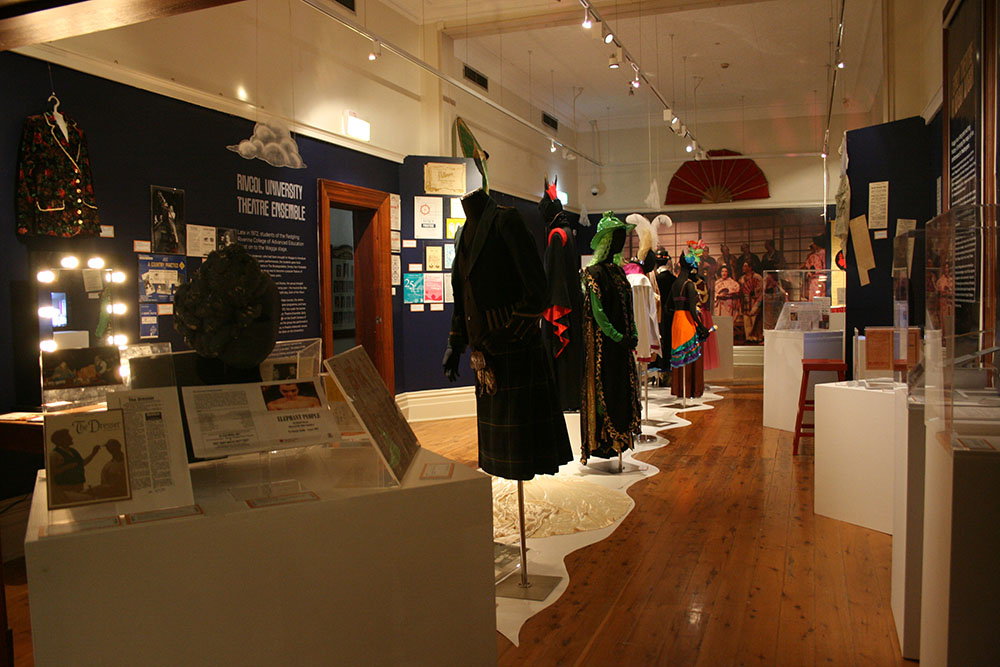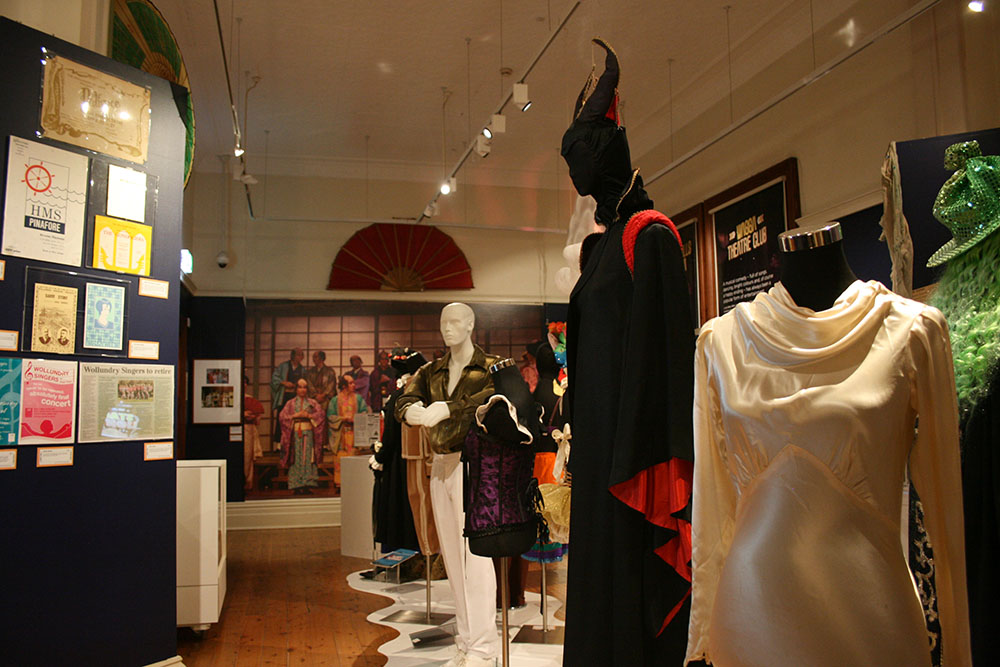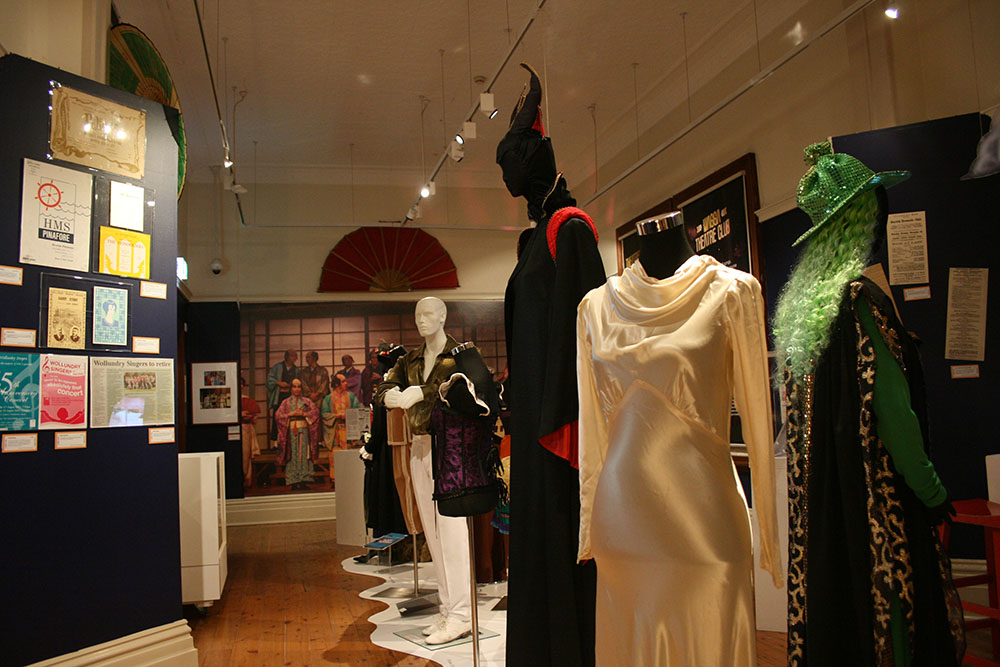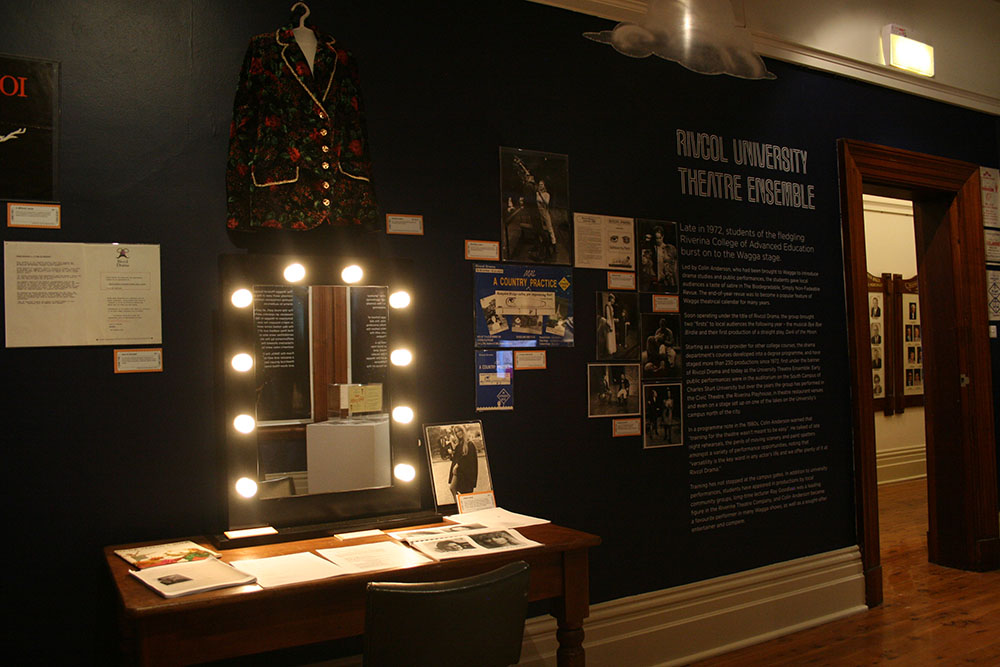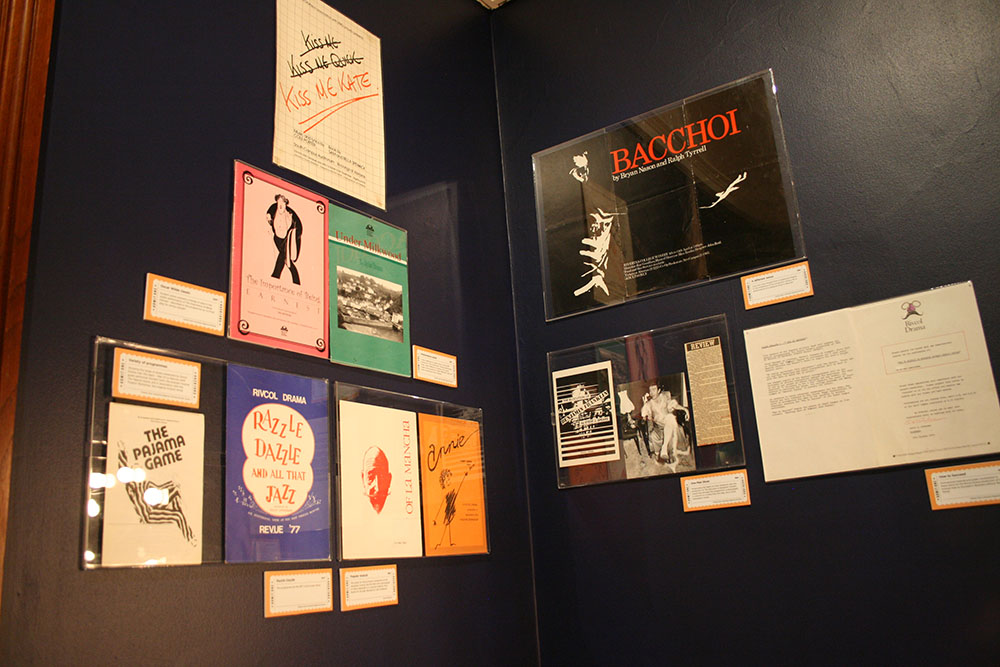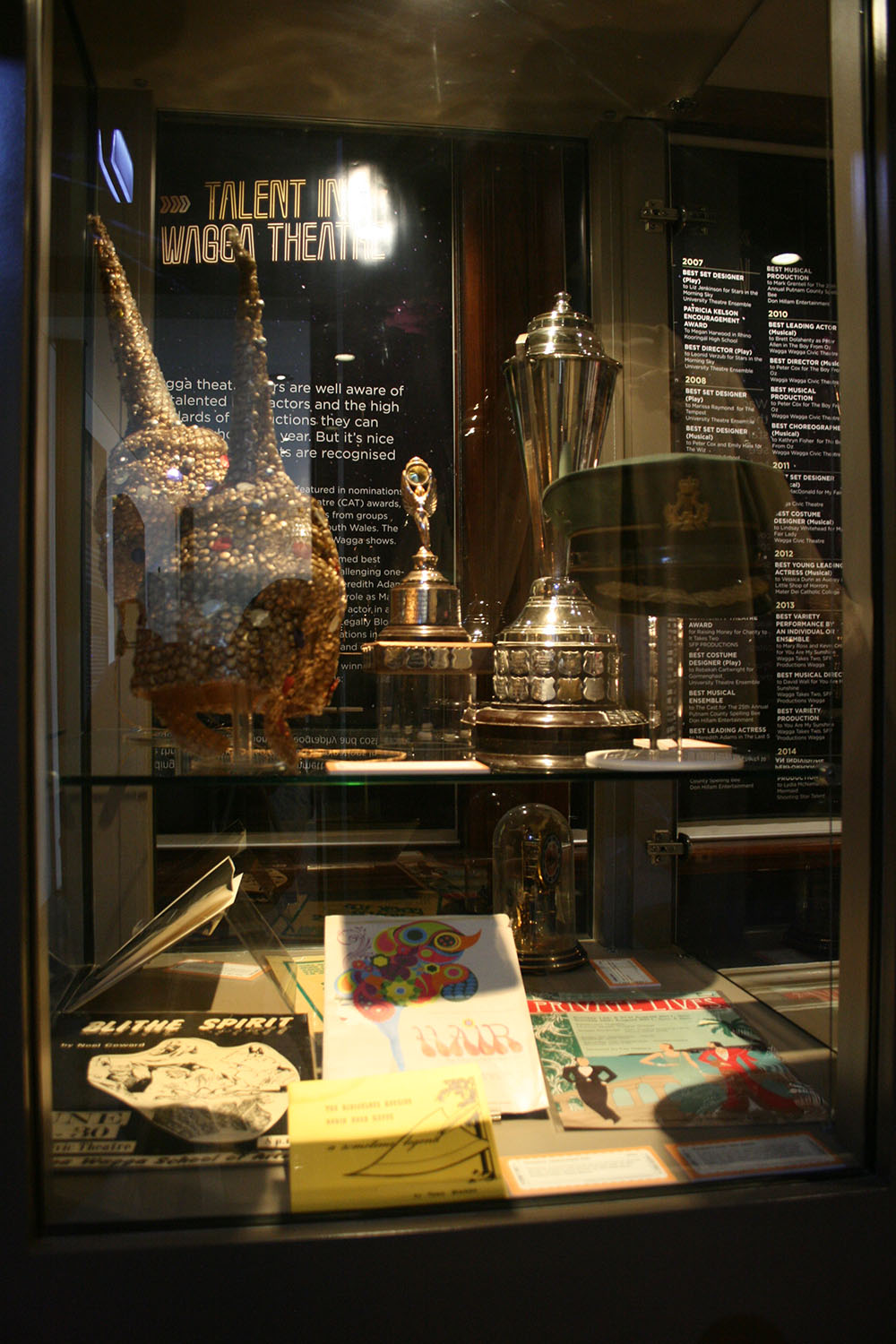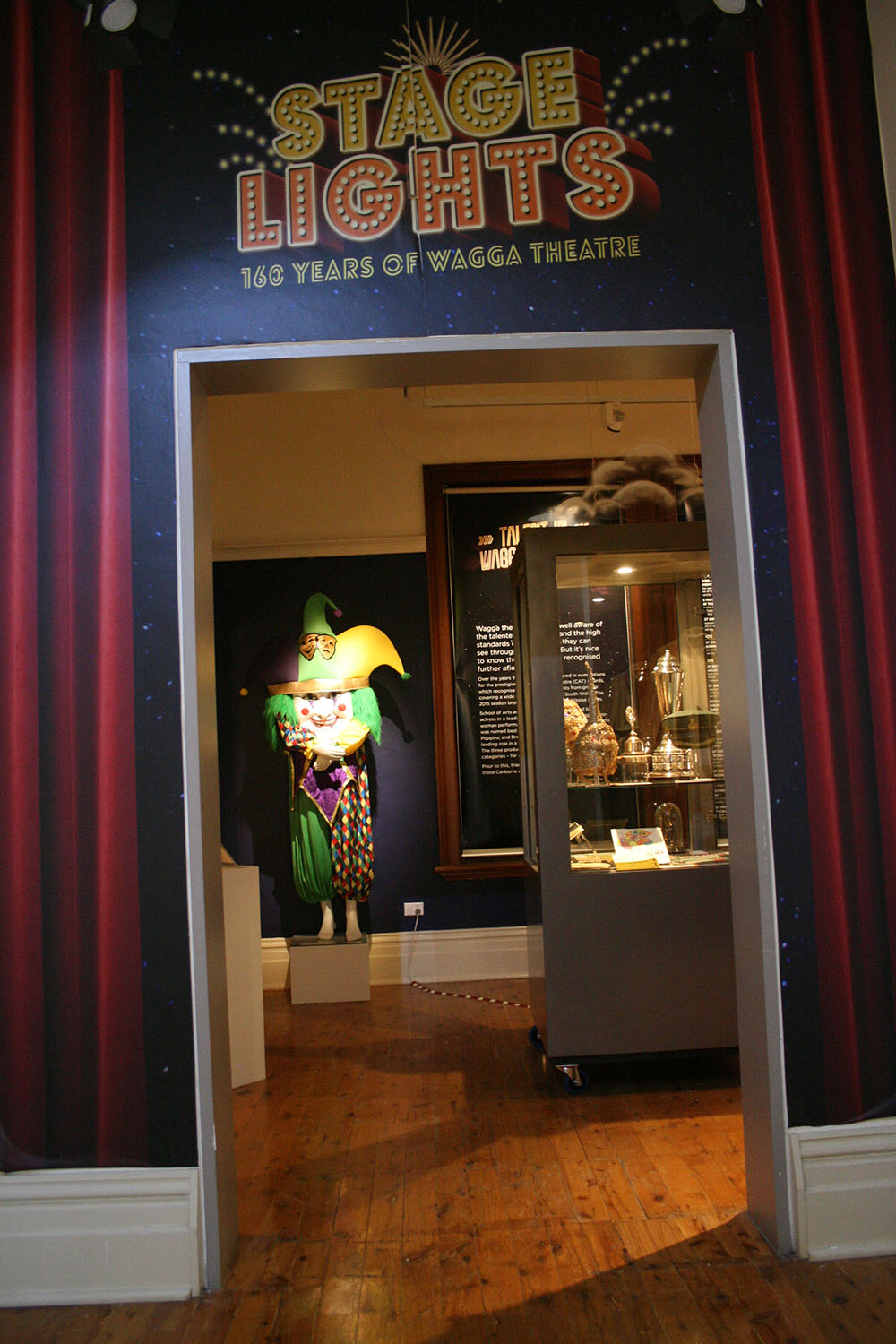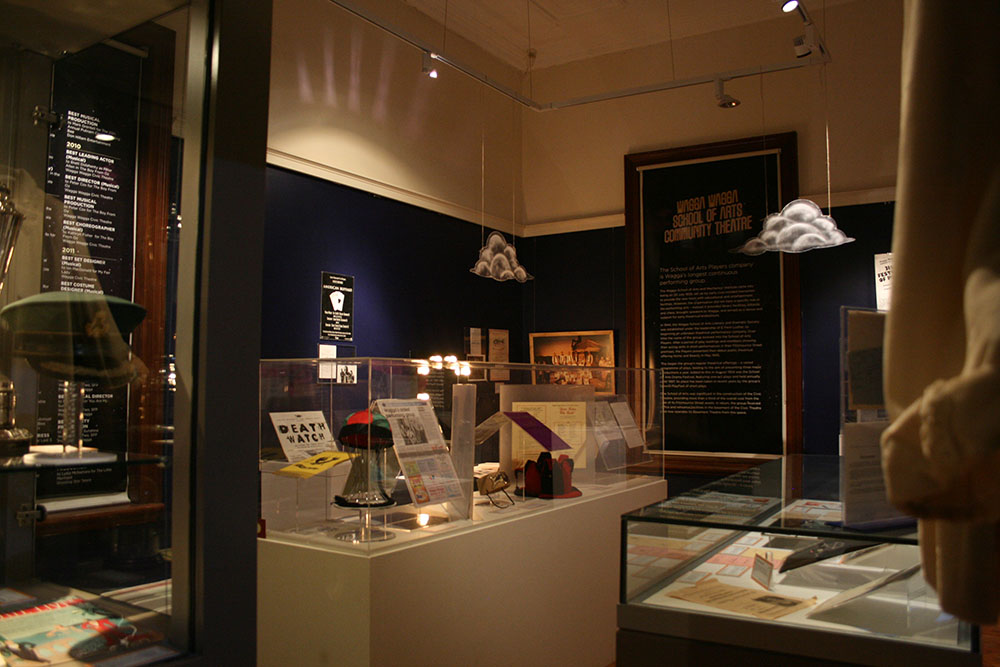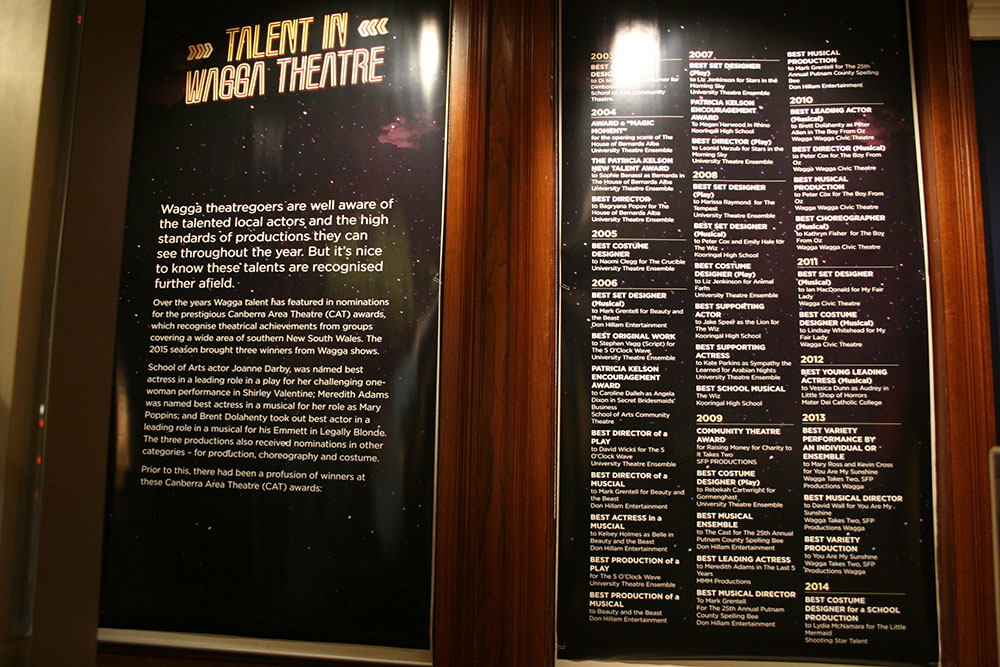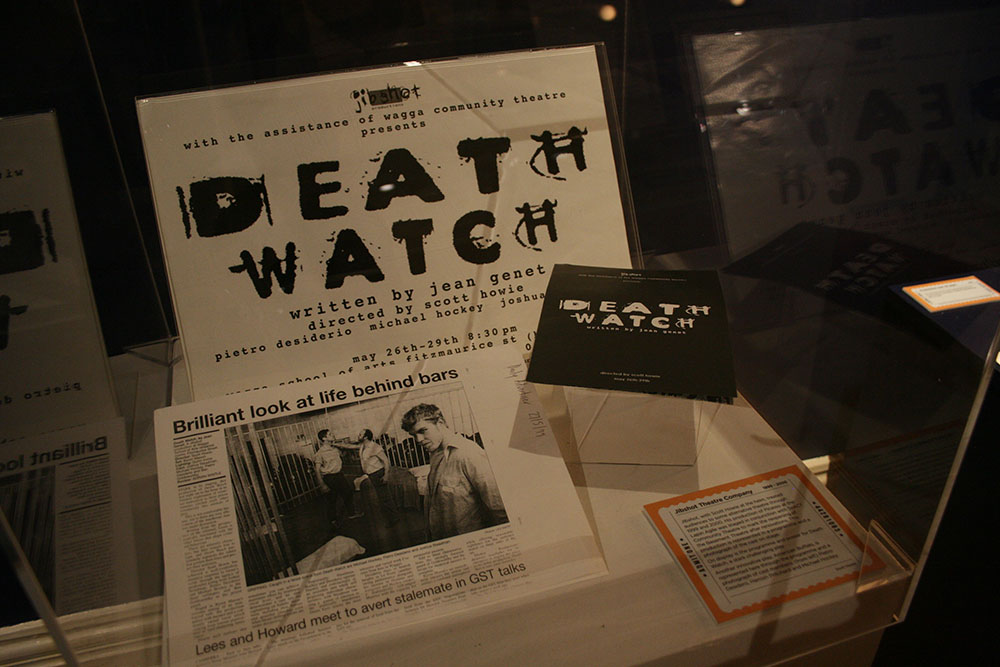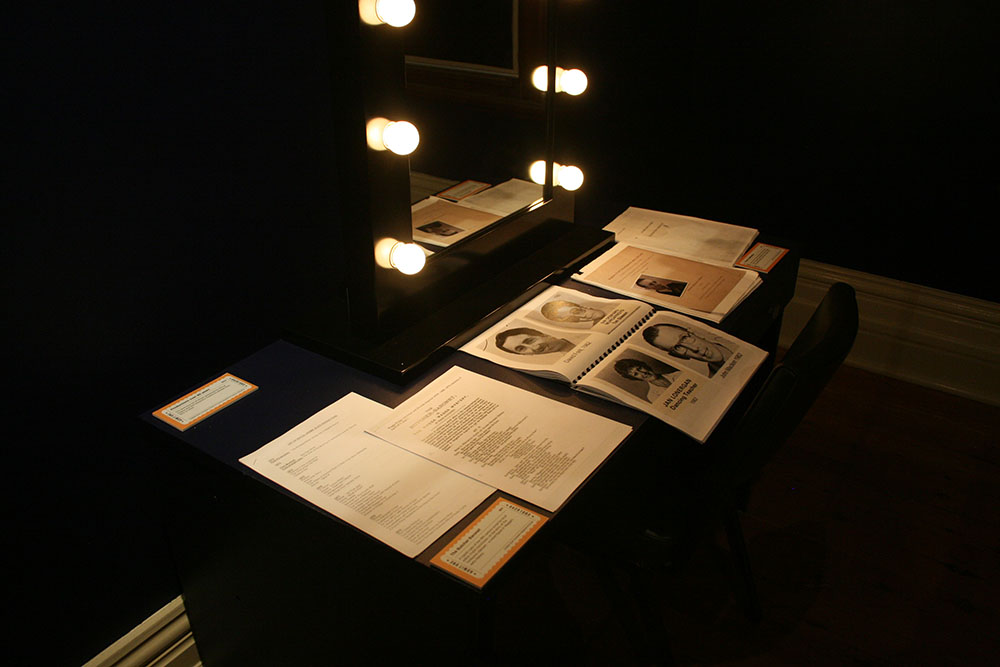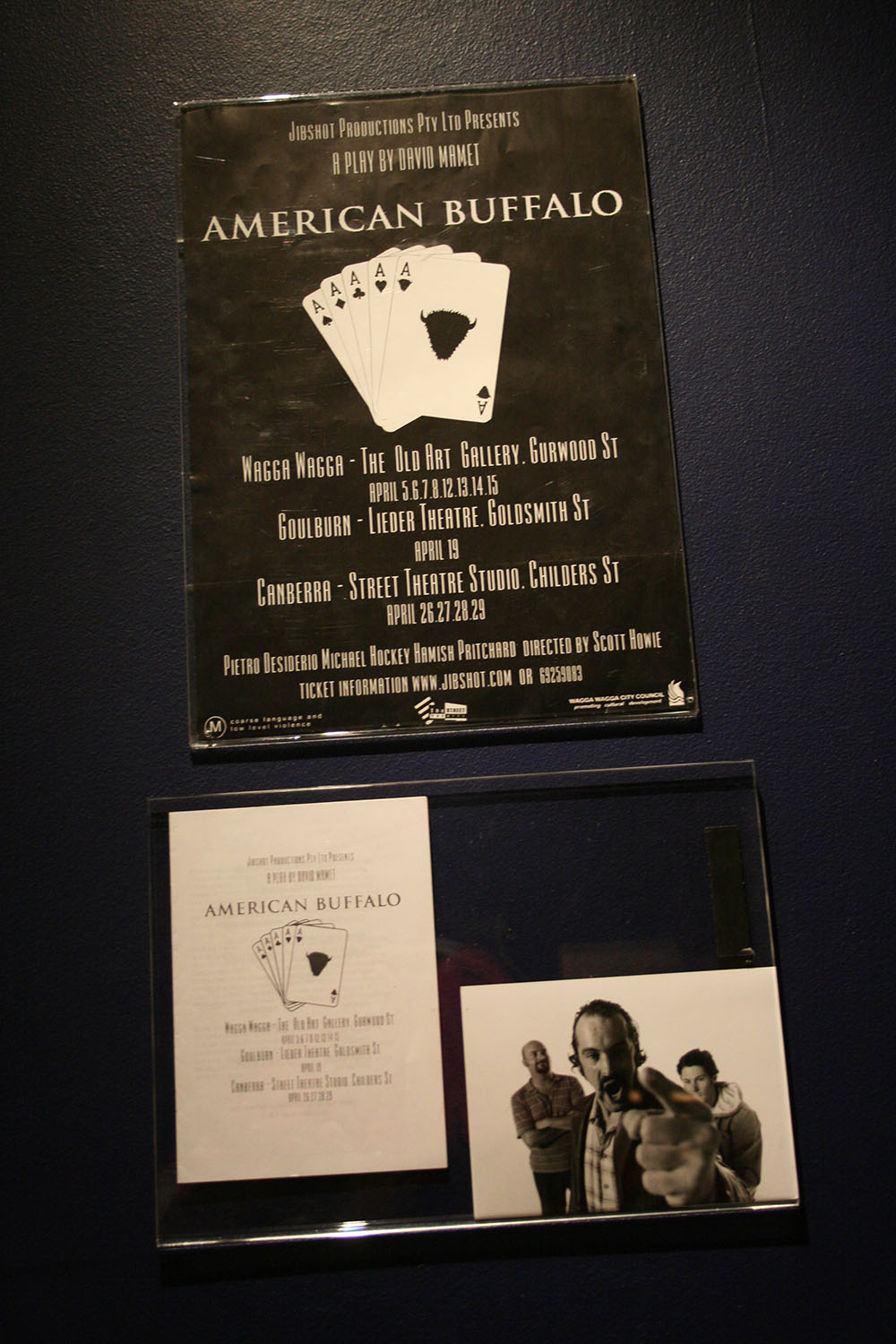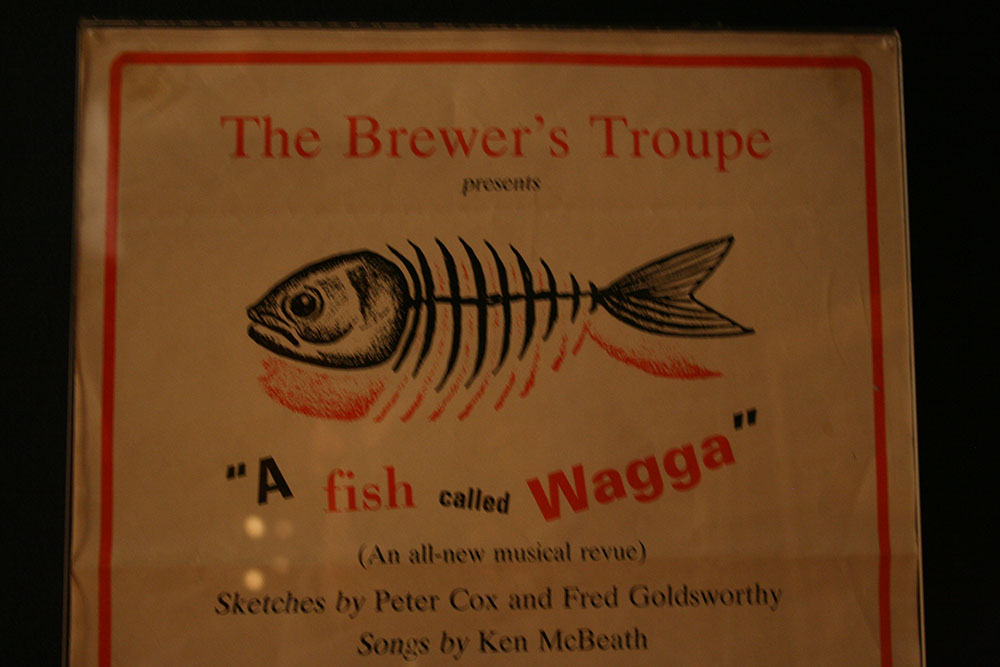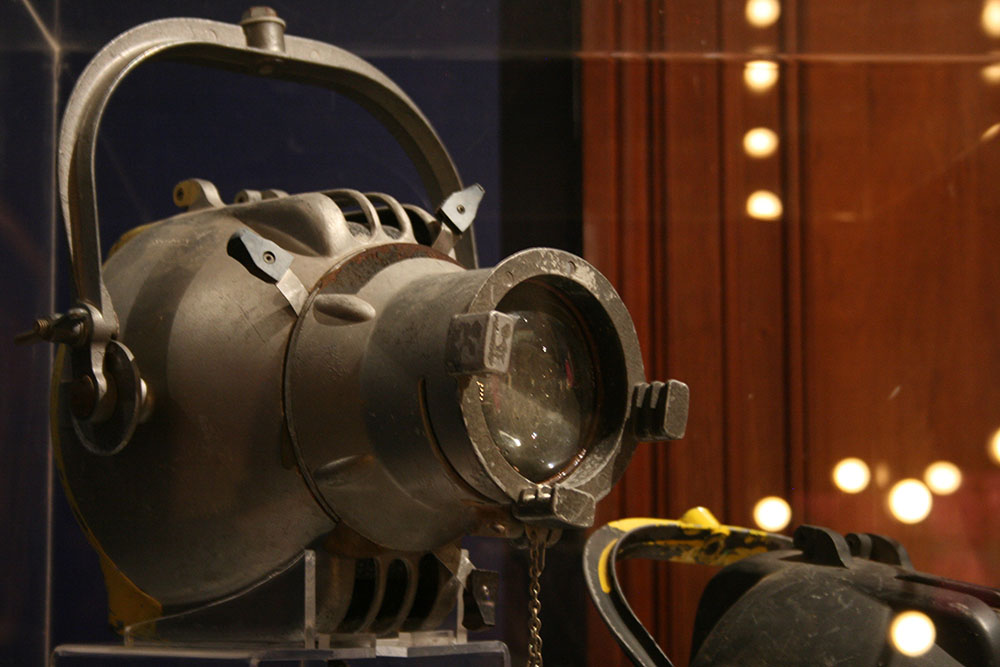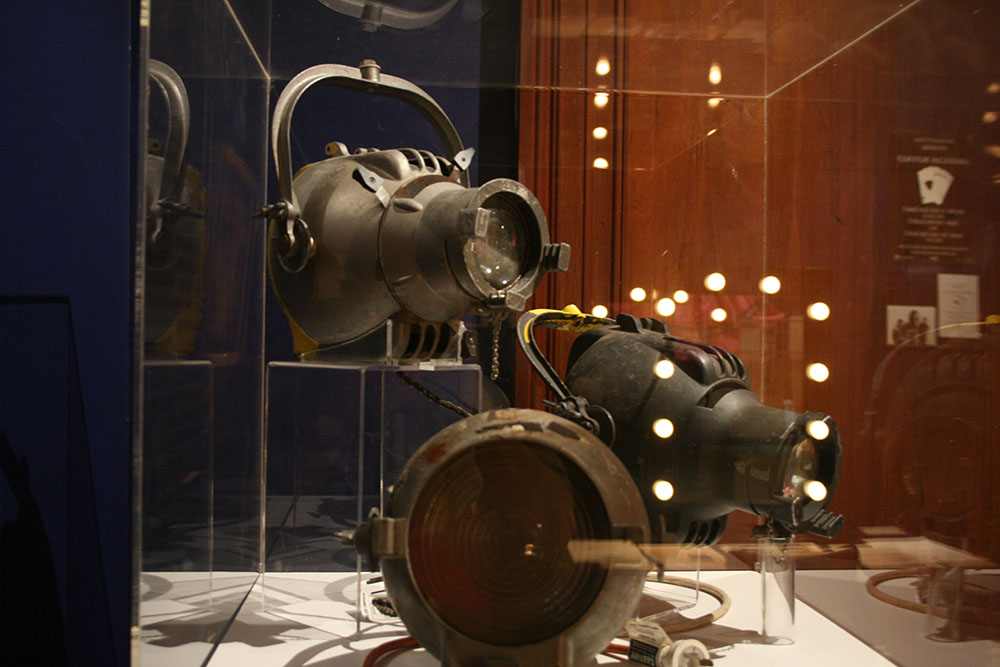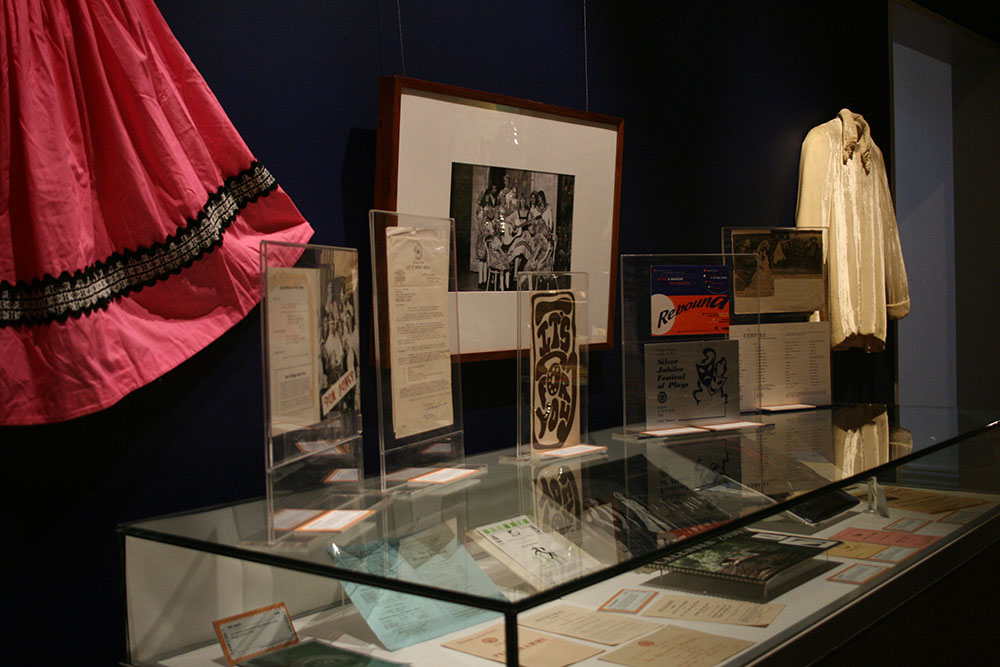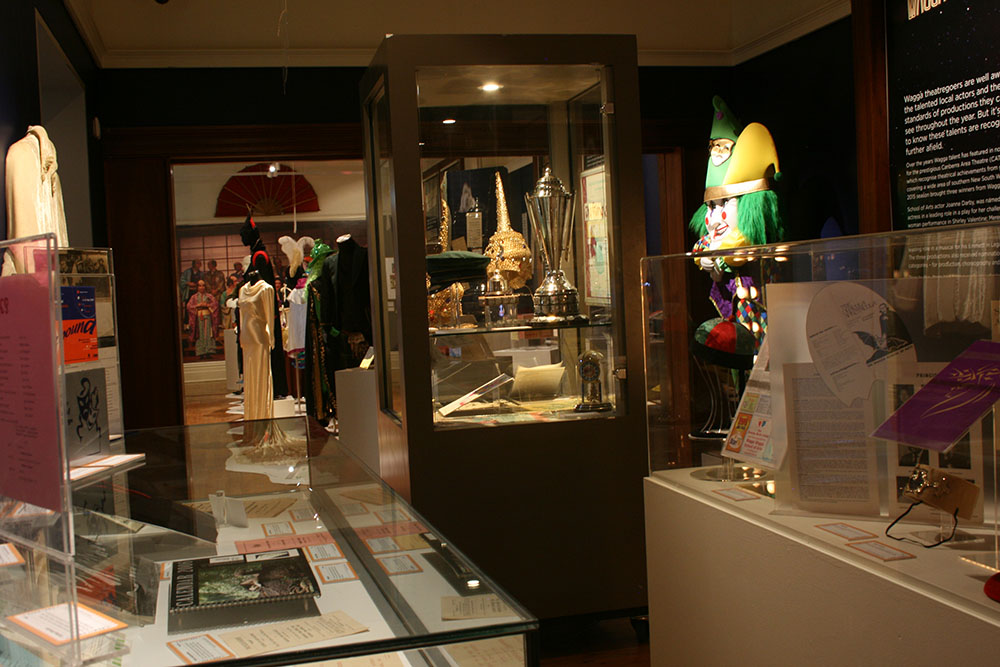Stagelights
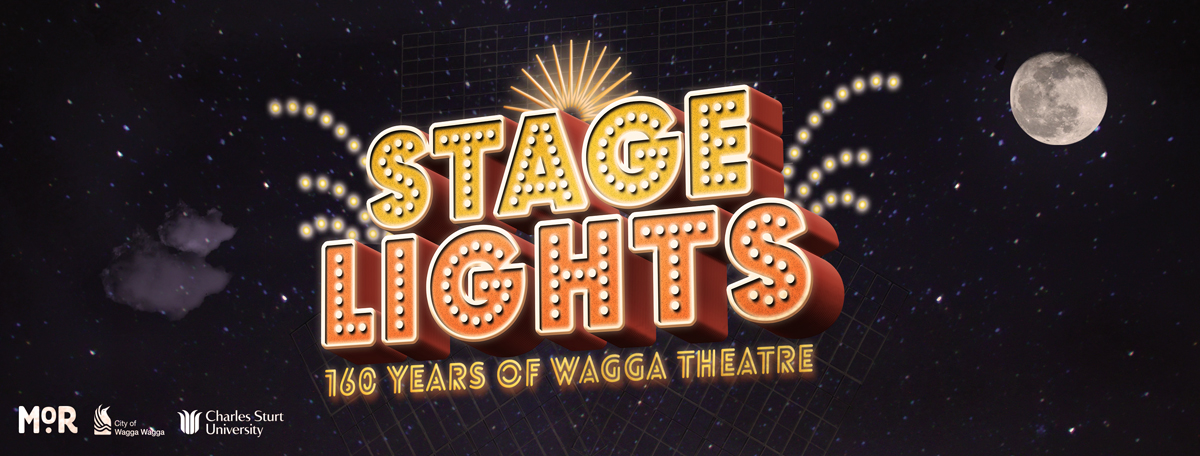
Historic Council Chambers site | November 19, 2016 - 26 February, 2017
Stagelights: 160 Years of Wagga Theatre, raises the curtain on theatre in the city – from its early beginnings of local men reading short plays in a hotel, through the growth of drama societies and to the wide range of theatrical experiences for the audiences of today. Embrace the magic of a night at the theatre as local groups take their audiences to other worlds – those of laughter and comedy, pathos and thought-provoking stories, music and songs, scripts from Stoppard to Shakespeare. One of the joys of theatre is the variety of performances to be enjoyed.
Wagga has seldom been without an amateur drama group. When Mr B J Coleman gave his "dramatic reading" of the play The Lady of Lyons at a local hotel in April 1859, he started a tradition of performance in the then tiny village. A few weeks later, Coleman was leading several "gentlemen amateurs" in a performance of the plays, The Wife's Wager Won and Box and Cox, alongside musical items, significantly, organised to raise funds for the town's early hospital. Then in June 1866, the local press reported that a new Wagga Amateur Musical Society would be staging a programme featuring a play called Mrs Snug's Little Business and other items.
In April 1870 local history was woven into the theatrical offerings when a press advertisement said four gentlemen would be providing an evening of "serious and comic music and literature, interwoven with dialogue". The advertisement noted that dialogue had been written for the occasion by Frank Hutchinson – a local newspaper figure who was also the author of The Butcher Baronet, the story of Wagga butcher Thomas Castro who claimed to be the heir to the Tichborne fortune in England. Proceeds of the 1870 performance were to go towards the building fund of the Mechanics' Institute – an important part of Wagga's early theatrical endeavours.
One of the earliest formal theatre groups was the Garrick Dramatic Club which performed in 1885 under the guidance of Thomas Bellairs, an enthusiast with a background in London theatre. A local press advertisement in November 1885 drew attention to the club's performance of Won At Last, noted as an "original comedy-drama in three acts". The Garrick Dramatic Club had the backing of some of Wagga's leading figures of the time with Mayor, James Gormly, as president, and vice-presidents Mr L A Fosbery and Dr E S Piercy. Throughout the 1890s there were various groups under such names as the Wagga Amateur Dramatic Club, the Light Opera Society and The Thespians, a nod to the legendary Greek figure, Thespis, who was believed to be the first person to appear as a single character on stage.
From these first steps on the theatrical scene emerged groups such as the Wagga Musical Society, first operating for several years in the late 1870s, with a similarly-named group staging annual musical comedies through the 1920s and 1930s; followed by the rise of several drama companies from the 1940s bringing a variety of theatre experiences.
The exhibition looks at this latter period in particular as it showcases the groups which have brought the enjoyment and excitement of live theatre to audiences over the past 60 to 70 years. They provide a range of theatrical fare – the School of Arts Players, Wagga's longest continuous performing group (since 1944) and now known as the School of Arts Community Theatre (SoACT); the musical delights of the Theatre Club and the Wollundry Singers; variety from the tertiary students of the early Teachers' College followed by Rivcol Drama and the University Theatre Ensemble; young actors in the Children's Theatre Workshop; the professionals of the Riverina Theatre Company; the impressive musicals of the Bidgee Theatre Company and the Civic Theatre; a variety of styles from companies such as St John's Players and Jibshot; and the revues of the Brewer's Troupe. Plus many more.
This rich theatrical history is shown in the exhibition through photographs, posters, programmes, costumes and stage properties to provide a journey through the magical world of theatre.
